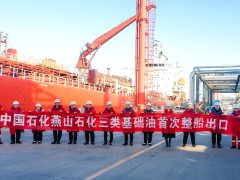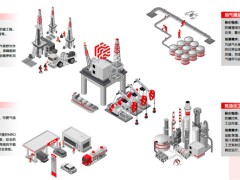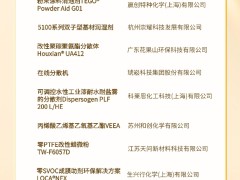据道琼斯4月14日消息,道达尔能源公司和新日本石油公司(ENEOS)宣布了一项合作,双方将共同进行一项可行性研究,以评估新日本石油公司位于日本横滨市的根岸炼油厂的可持续航空燃料(SAF)的生产。
两家公司已经开始进行与该项目相关的原料采购和SAF生产的研究。这个计划中的装置产能将为每年30万吨的SAF,将处理主要来自循环经济的垃圾或残渣,主要是使用食用油和动物脂肪。这两家公司正在考虑建立一家新的合资企业来生产SAF。
此次合作将利用两家公司各自的优秀领域和专业知识,2025年左右在日本发展可持续的SAF供应链。道达尔能源在原料采购和SAF生产技术方面拥有丰富的经验。新日本石油公司根岸炼油厂拥有生产以及装卸设施,同时该炼油厂位于日本最大的航空燃料需求区(成田机场和羽田机场),此外该公司在日本拥有航空燃料销售网络。
为了应对全球气候变化的重大挑战,这两家能源公司一直在与客户一起努力,在全球范围内减少温室气体排放,为实现脱碳、循环利用型社会铺平道路。在航空业,应对全球脱碳已成为一个紧迫的问题,而SAF有望成为减少二氧化碳排放的有效途径。在日本,土地、基础设施、交通和旅游部(MLIT)制定了到2030年实现10%的SAF使用的目标。
庞晓华 摘译自 道琼斯
原文如下:
DJTotalEnergies and ENEOS to Study Sustainable Aviation Fuel production at ENEOS Negishi Refinery
TotalEnergiesand ENEOS Corporation announced a collaboration to jointly conduct a feasibility study to assess the production of Sustainable Aviation Fuel (SAF) in ENEOS Negishi Refinery in Yokohama city, Japan.
The companies have already started to conduct the study for feedstock procurement and production of SAF related to this project. The proposed unit, which capacity would be 300,000 tons per year of SAF, would process waste or residue sourced notably from the circular economy, mainly used cooking oil and animal fat. The two companies are considering establishing a new joint venture to produce SAF.
This collaboration would leverage the companies' respective areas of excellence and expertise for the development of the sustainable supply chain of SAF in Japan around 2025:TotalEnergies' experience in feedstock procurement and SAF production technology. ENEOS's available production and loading/unloading facilities of the Negishi Refinery1, which is located in the largest aviation fuel demand area in Japan (Narita and Haneda airports) and marketing network of aviation fuel in Japan
Responding to the significant challenge of global climate change, the two energy companies have been working to reduce greenhouse-gas emissions on a global scale together with their customers, paving the way for a decarbonized, recycling-oriented society. In the airline industry, dealing with global decarbonization has become an urgent issue and SAF is expected to be an effective way to reduce CO2 emission. In Japan, Ministry of Land, Infrastructure, Transport and Tourism ("MLIT") has set a target of 10% SAF use to be achieved by 2030.
免责声明:本网转载自其它媒体的文章及图片,目的在于弘扬石化精神,传递更多石化信息,宣传国家石化产业政策,展示国家石化产业形象,参与国际石化产业舆论竞争,提高国际石化产业话语权,并不代表本网赞同其观点和对其真实性负责,在此我们谨向原作者和原媒体致以崇高敬意。如果您认为本站文章及图片侵犯了您的版权,请与我们联系,我们将第一时间删除。







